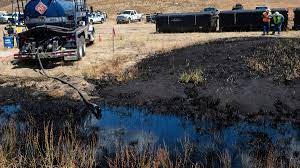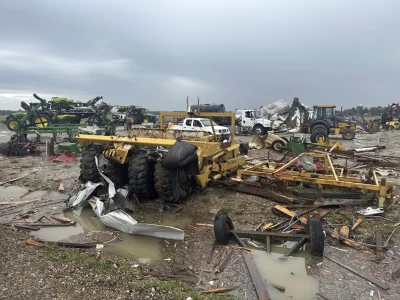
ExxonMobil lost a court bid Wednesday to truck millions of gallons of crude oil through central California — a crucial part of its efforts to restart offshore oil wells that were shut in 2015 after a pipeline leak caused the worst coastal spill in 25 years.
A federal judge refused to overturn a 2022 decision by the Santa Barbara County Board Supervisors that denied ExxonMobil’s request to use trucks to carry crude from the three wells.
A request for comment from ExxonMobil about the decision wasn’t immediately returned.
The pipeline was shut down on May 19, 2015, when a corroded section above ground and running west of Santa Barbara ruptured, sending 140,000 gallons (529,958 liters) of oil onto a state beach and into the ocean.
Three decades-old drilling platforms were shuttered in the wake of the disaster.
ExxonMobil proposed sending up to 24,820 tanker trucks a year on coastal Highway 101 and and State Route 166 for up to seven years, arguing that was the only option for getting the oil from the offshore wells to onshore processing plants until a pipeline becomes available.
But county supervisors voted against issuing a permit amid concerns over the effect on local traffic and the potential for spills and accidents.
Environmental groups praised the court decision.
“ExxonMobil’s plan to restart its offshore platforms and truck millions of gallons per week through Santa Barbara County is reckless, dangerous, and totally unwelcome by this community,” said Linda Krop, chief counsel of the Environmental Defense Center, which represents four activist groups. “Today’s decision puts the safety of our communities, climate, and coastlines first.”
Meanwhile, a separate proposal to replace the pipeline remains under review by regulators.
California’s oil and gas industry supports hundreds of thousands of jobs. But with climate change expanding the threat of wildfires and drought, the state has positioned itself as a global leader in renewable energy and pioneering policies intended to slow the planet’s warming. California plans to ban the sale of new gas-powered cars and trucks by 2035 and end oil production a decade later.







